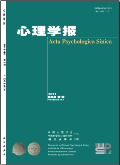心理学报2024,Vol.56Issue(2):239-254,16.DOI:10.3724/SP.J.1041.2024.00239
人工智能方法在探究小学生作业作弊行为及其关键预测因子中的应用
The application of artificial intelligence methods in examining elementary school students' academic cheating on homework and its key predictors
摘要
Abstract
Academic cheating has been a challenging problem for educators for centuries.It is well established that students often cheat not only on exams but also on homework.Despites recent changes in educational policy and practice,homework remains one of the most important academic tasks for elementary school students in China.However,most of the existing studies on academic cheating for the last century have focused almost exclusively on college and secondary school students,with few on the crucial elementary school period when academic integrity begins to form and develop.Further,most research has focused on cheating on exams with little on homework cheating.The present research aimed to bridge this significant gap in the literature.We used the advanced artificial intelligence methods to investigate the development of homework cheating in elementary school children and the key contributing factors so as to provide scientific basis for the development of early intervention methods to promote academic integrity and reduce cheating. We surveyed elementary school students from Grades 2 to 6 and obtained a valid sample of 2,098.The questionnaire included students'self-reported cheating on homework(the dependent variable).The predictor variables included children's ratings of(1)their perceptions of the severity of consequences for being caught cheating,(2)the extent to which they found cheating to be acceptable,and the extent to which they thought their peers considered cheating to be acceptable,(3)their perceptions of the effectiveness of various strategies adults use to reduce cheating,(4)how frequently they observed their peers engaging in cheating,and(5)several demographic variables.We used ensemble machine learning(an emerging artificial intelligence methodology)to capture the complex relations between cheating on homework and various predictor variables and used the Shapley importance values to identify the most important factors contributing children's decisions to cheat on homework. Overall,33%of elementary school students reported having cheated on homework,and the rate of such self-reported cheating behavior increased with grade.The best models with the ensemble machine learning accurately predicted the students'homework cheating with a mean Area Under the Curve(AUC)value of 80.46%.The Shapley importance values showed that all predictors significantly contributed to the high performance of our computational models.However,their importance values varied significantly.Children's cheating was most strongly predicted by their own beliefs about the acceptability of cheatings,how commonly and frequently they had observed their peers engaging in academic cheating,and their achievement level.Other predictors such as children's beliefs about the severity of the possible consequences of cheating(e.g.,being punished by one's teacher),their beliefs about the effectiveness of cheating deterrence strategies(e.g.,working harder)and demographic characteristics,though significantly,were not important predictors of elementary school children's homework cheating. This study for the first time examined elementary school students'homework cheating behavior.We used machine learning integration algorithms to systematically investigate the key factors contributing to elementary school students'homework cheating.The results showed that homework cheating already exists in the elementary school period and increases with grade.Advanced machine learning algorithms revealed that elementary school students'homework cheating largely depends on their acceptance of cheating,their peers'homework cheating,and their own academic performance level.The present findings advance our theoretical understanding of the early development of academic integrity and dishonesty and forms the scientific basis for developing early intervention programs to reduce academic cheating.In addition,this study also shows that machine learning,as the core method of artificial intelligence,is an effective method that can be used to analyze developmental data analysis.关键词
小学生/诚信/学业作弊/作业作弊/机器学习/预测/同伴行为Key words
elementary school students/honesty behavior/academic cheating/cheating on homework/machine learning/prediction/peer behavior分类
社会科学引用本文复制引用
赵立,郑怡,赵均榜,张芮,方方,傅根跃,李康..人工智能方法在探究小学生作业作弊行为及其关键预测因子中的应用[J].心理学报,2024,56(2):239-254,16.基金项目
国家自然科学基金项目(32171060)和浙江省教育厅一般科研项目(Y202250508)资助. (32171060)

